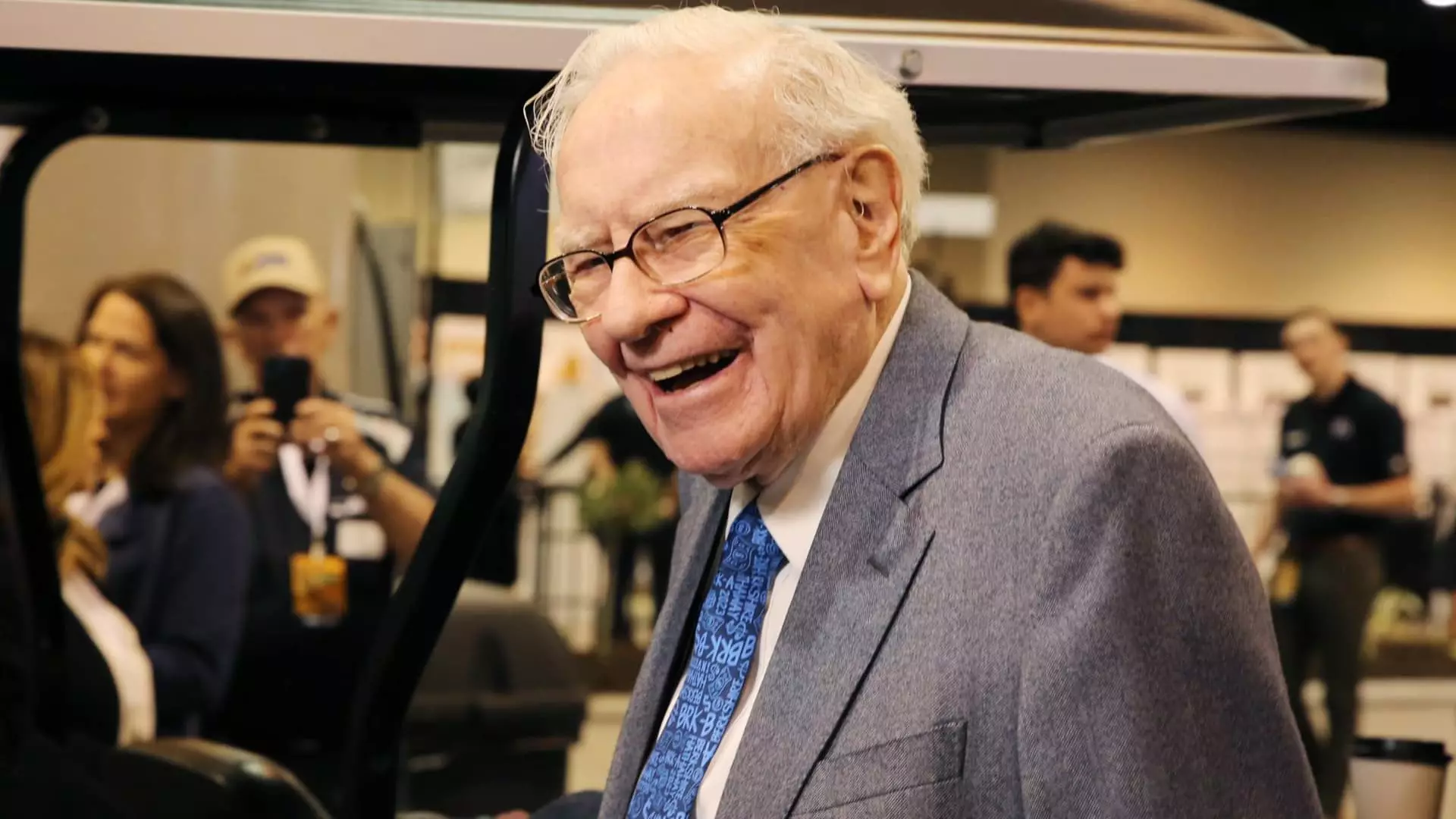In a monumental moment, Warren Buffett’s Berkshire Hathaway made history by reaching a $1 trillion market capitalization, marking itself as the first non-technology company in the U.S. to achieve this milestone. The Omaha-based conglomerate has seen its shares surge by over 28% in 2024, outpacing the S&P 500’s 18% gain. This feat was accomplished just two days before Buffett’s 94th birthday, with shares hitting a high of $699,440.93 on Wednesday to cross the $1 trillion mark.
Berkshire Hathaway, known for its old-economy focus, boasts ownership of a diverse portfolio of businesses including BNSF Railway, Geico Insurance, and Dairy Queen. While maintaining its roots in traditional industries, the company has embraced modern investments like its sizable Apple position, which has contributed significantly to its recent gains. Buffett’s leadership has steered Berkshire from its origins as a struggling textile business in the 1960s to its current status as an expansive empire with interests spanning insurance, railroad, retail, and energy.
Buffett’s Recent Strategy Shift
Despite Buffett’s reputation for avoiding market timing, recent decisions to divest significant amounts of stock, including half of his Apple stake, have raised eyebrows among investors. Berkshire’s cash reserves now stand at a record $277 billion as of June, with most of it parked in short-term Treasury bills. This defensive move, coupled with a selling spree of Bank of America shares, has led some to speculate on Buffett’s outlook for the economy and market valuations. The investment guru’s actions have prompted renewed interest and scrutiny from Wall Street observers.
As Berkshire Hathaway embraces its trillion-dollar status, questions linger about the rationale behind investor enthusiasm. Are shareholders banking on the resilience of the American economy and Buffett’s array of businesses to thrive in uncertain times? Or do they view Berkshire as a safe haven, a cash fortress capable of weathering economic storms and generating stable income? With Berkshire’s market value poised to rise further, analysts foresee continued growth potential and attractive opportunities for investors seeking stability amid market volatility.
Buffett’s steadfast refusal to split Berkshire’s Class A shares underscores his belief in attracting long-term, quality-oriented investors. With each Class A share commanding a premium price, Buffett maintains that this strategy fosters a shareholder base committed to the company’s long-term vision. Meanwhile, the introduction of Class B shares in 1996 provided an accessible entry point for smaller investors seeking exposure to Buffett’s legendary investment prowess, further diversifying Berkshire’s shareholder base.
Berkshire Hathaway’s $1 trillion milestone represents a testament to Warren Buffett’s enduring legacy as a savvy investor and business leader. As the company continues to navigate evolving market conditions, its strategic decisions and investments will be closely scrutinized by investors and analysts alike. With its unwavering commitment to long-term growth and stability, Berkshire Hathaway stands as a beacon of financial success and innovation in an ever-changing economic landscape.

